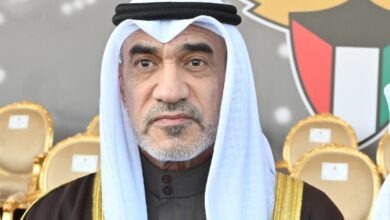Govt capital spending on projects hits 715 million dinars mark

During the first nine months of fiscal 2023-2024, the government spending on capital projects has hit approximately 715 million dinars, staying within the 40% threshold of total capital expenditures allocated in the general budget, which amounts to 1.8 billion dinars.
Official data from the Ministry of Finance for the same period (April – December) unveiled a predominant focus on current expenditures like salaries and subsidies, accounting for around 16.4 billion dinars out of the allocated 24.4 billion dinars in the current general budget, reflecting a disbursement rate of 60%. Worker compensation spending reached about 6.1 billion dinars out of the designated 9.8 billion dinars, demonstrating a 62.9% spending rate.
Among government entities, the Ministry of Electricity and Water led in spending, disbursing 3.2 billion dinars over nine months, followed by the Ministry of Education and the Ministry of Health, each spending approximately 1.8 billion dinars.
Despite these expenditures, the new government work program for 2024-2027 acknowledged several challenges hindering project implementation, including financial corruption, budget mismanagement, irregular financial payments, geopolitical conditions, global inflation, claims and change order costs, value-price imbalances, non-compliance with international standards and contract terms, delayed awarding, and financial flow issues.
In response, the government introduced new criteria for project selection, aiming to address these challenges effectively such as:
- The output must be clear and specific.
- The initiative should not be part of the entity’s routine work other than reducing an existing negative practice.
- Clarity of title and description of the initiative or project.
- List existing projects that expire within 100 days.
- Delete initiatives that are not compatible with Kuwait’s vision and economic identity.
- The entity’s ability to implement the project.
Meanwhile, the sources said, Kuwait has suffered for many years from inefficient government investment spending, as this spending did not achieve the tangible development impact that would maximize the size of the economy, create new jobs for citizens, and increase foreign investment.
Strategic development projects have always faced several challenges, the most important of which are financial and administrative challenges, which have caused the cancellation and delay of some of them, while the cost of projects is increasing day after day with the continued rise in global prices of raw materials, disruptions to supply chains, and other obstacles.












